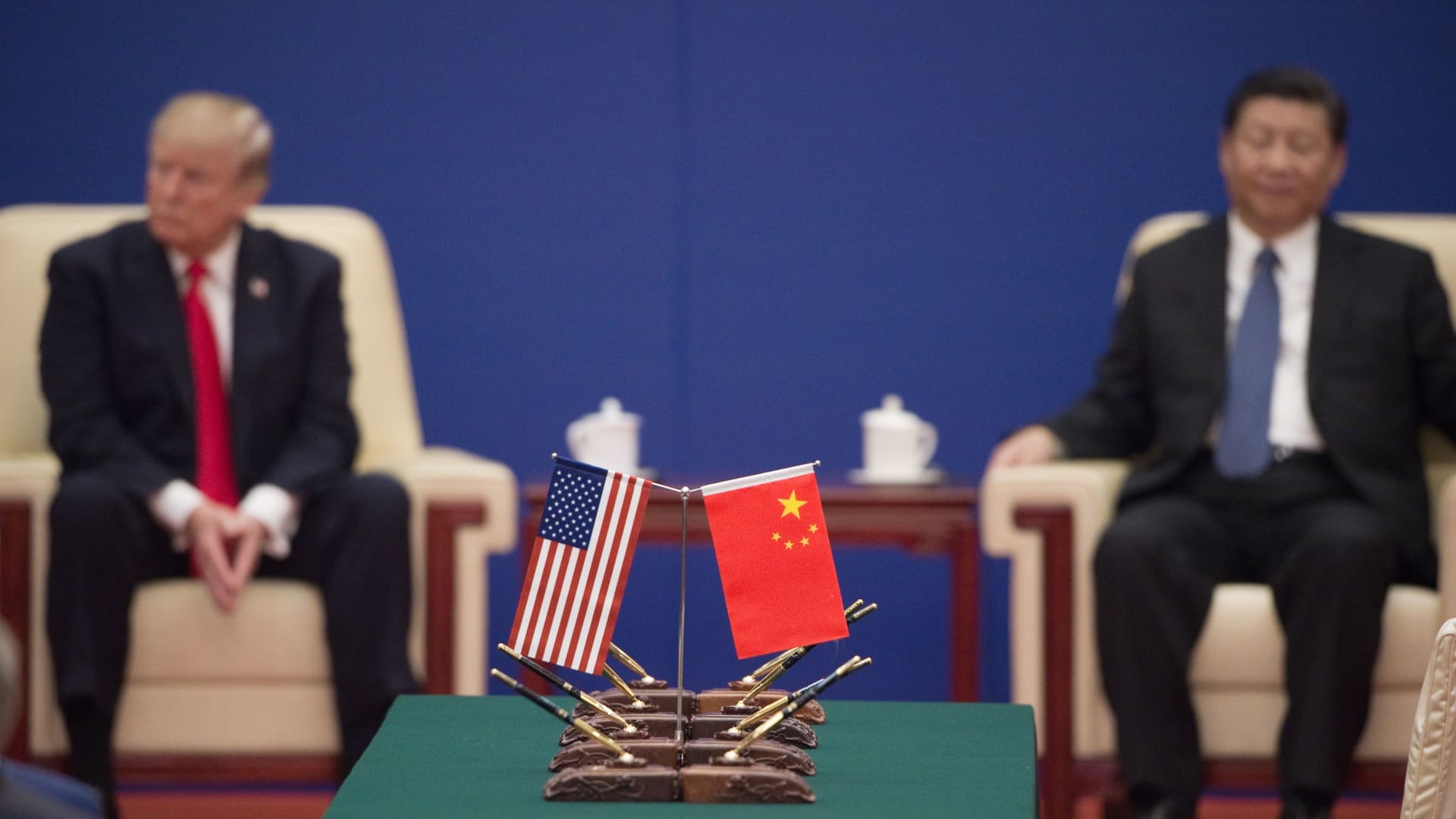US President Donald Trump and China’s President Xi Jinping attend a business leaders event inside the Great Hall of the People in Beijing on November 9, 2017.
Nicolas Asfouri | AFP | Getty Images
Former President Donald Trump plans to escalate the U.S-China trade war he launched during his first term as president if he is elected to the office again in November.
The GOP frontrunner confirmed in an interview broadcast on Sunday that he is considering a plan to impose tariffs of 60% or higher on Chinese goods in his potential second term.
“We have to do it,” Trump said in an interview on Fox’s “Sunday Morning Futures.”
The Washington Post first reported the Trump campaign was weighing a theoretical 60% Chinese tariff plan.
On Sunday, the former president said he might even go higher: “Maybe it’s going to be more than that.”
Beyond China, the former president has said he would impose a blanket 10% tariff on all U.S. imports, despite broad criticism over how that could hurt consumers.
Former UN ambassador Nikki Haley, Trump’s sole remaining presidential challenger, criticized that policy proposal for the impacts it would have on American pocketbooks.
“What Donald Trump’s about to do, is he’s going to raise every household’s expenses by $2,600 a year,” said Haley in a January interview on CNBC’s “Squawk Box,” referencing data from the fiscally conservative National Taxpayers Union.
Her disapproval echoes the concerns of Wall Street investors who worry that another China trade war would disrupt markets again.
Starting in 2018, Trump began a wave of $250 billion in tariffs against China. The country then struck back with its own set of tariffs against the U.S. in a back-and-forth economic battle that lasted years and disrupted global trade dynamics.
Trump’s trade war with China cost Americans an estimated $195 billion since 2018, according to the American Action Forum, a conservative think tank. The economic battle also led to the loss of more than 245,000 U.S. jobs, according to the U.S.-China Business Council.
At the time, Deutsche Bank estimated that the trade war was causing the stock market to hemorrhage trillions.
The tariff dispute also left the U.S. and China, once each other’s biggest trading partners, on rocky geopolitical terms. President Joe Biden has been trying to warm the icy relations throughout his administration.
Trump has attacked Biden for appeasing China while simultaneously expressing cozy sentiments toward China’s authoritarian president, Xi Jinping.
“I like President Xi a lot,” Trump said Sunday. “He was a really good friend of mine during my time.”
Trump has in the past praised Xi for the ironclad grip he has on his government and his people. In an interview with Fox News’s Sean Hannity in December, Trump said if he is re-elected for a second term he would be a dictator “from day one.”
Trump later claimed in an interview broadcast Sunday that he had meant he would be “a dictator” on his first day in office, his “day one,” but only for a day. The comment nonetheless alarmed election experts, and provided grist for his opponents.
Read the original article here
